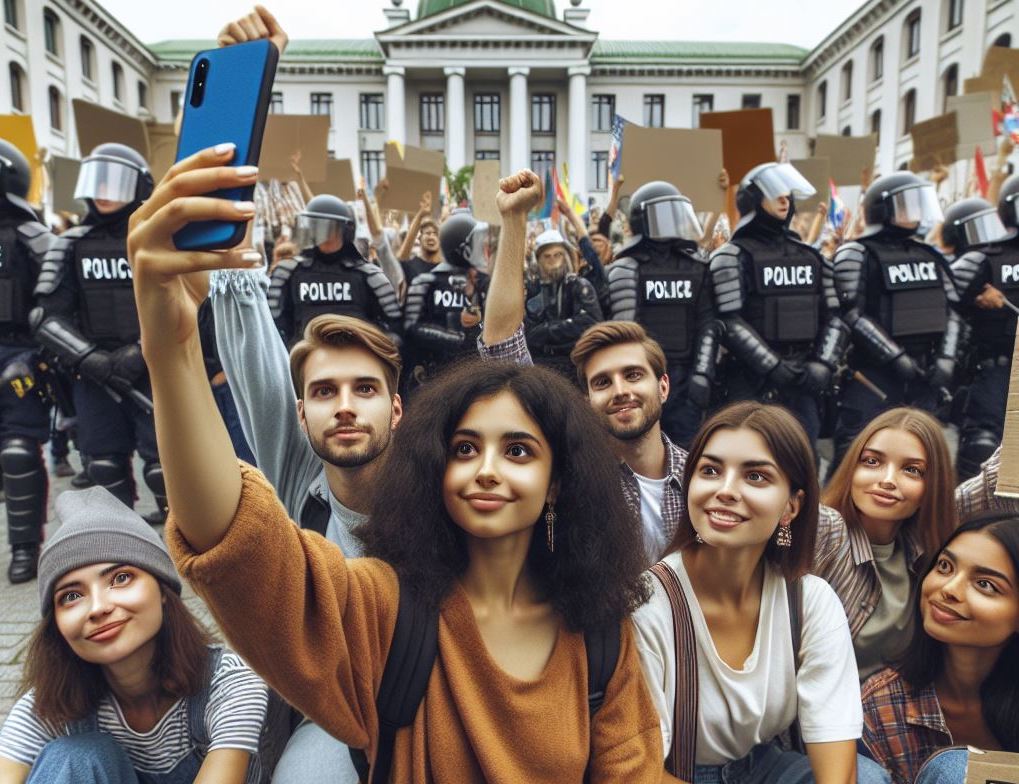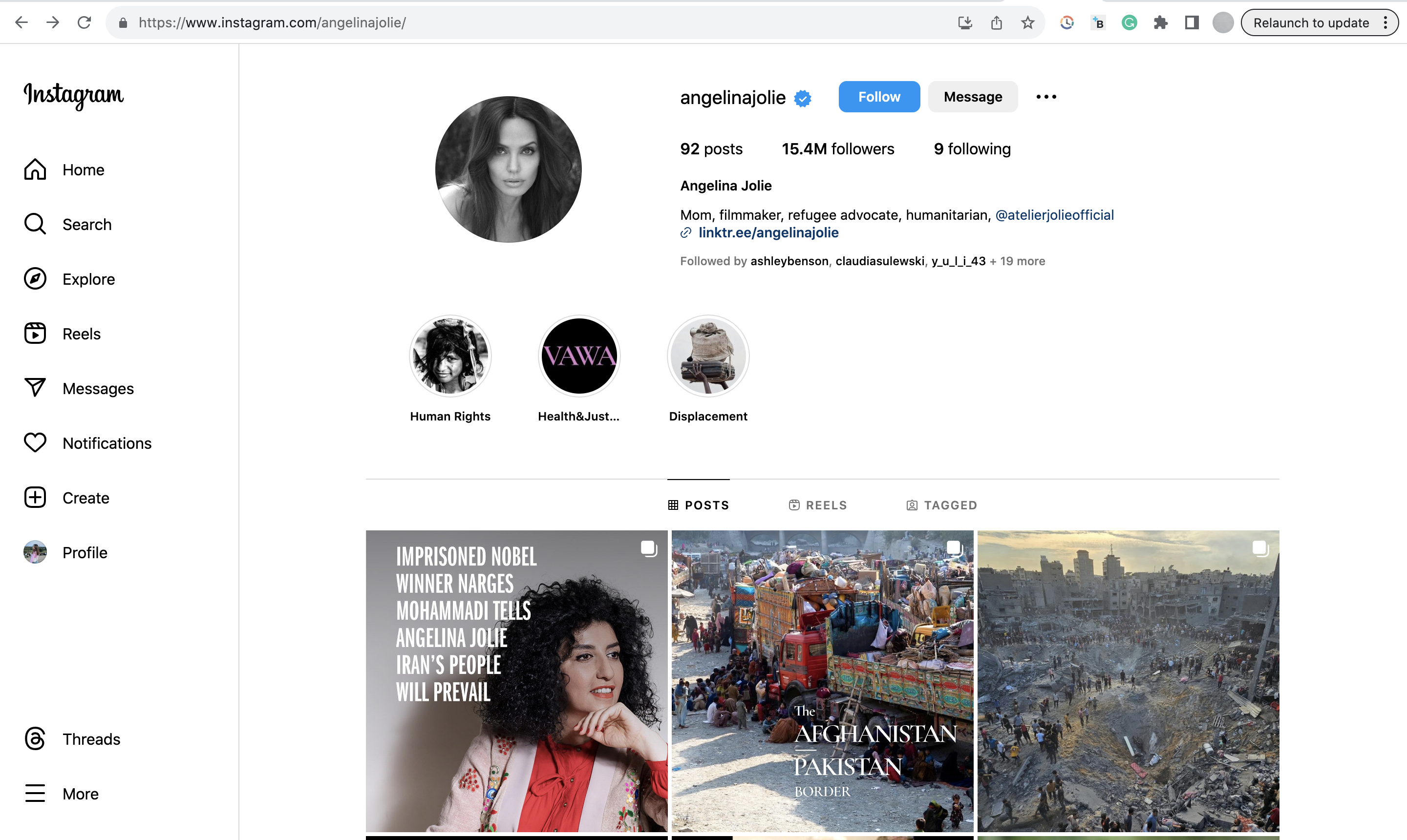Posting for a Cause: Celebrity Social Media Activism

In the ever-evolving landscape of social media, celebrities face a nuanced dilemma: when should they transform their platforms into megaphones for advocacy, and when is it more appropriate to maintain the status quo of their usual content? Every time a big story breakthroughs into the media, they are expected to share posts about it and make a personal statement. People get upset when they don’t. People also get upset if they do, because it doesn’t come off as sincere and well-informed. The expectations placed on public figures to engage in social issues have reached unprecedented heights, leading to a fine line between genuine activism and the potential pitfalls of performative gestures. In this article, we’ll delve into the phenomenon of social media activism, examining instances when celebrities' attempts faced criticism, and contrasting them to those who successfully struck the right chord.
Let's delve into a recent incident involving Selena Gomez, where she posted a story on her Instagram account amidst the ongoing situation in Palestine. Criticism arose as fans questioned her decision to remain silent on the matter. In response, Selena explained her choice by stating "I wish I could change the world. But a post won’t." This prompts an important reflection on the power and limitations of social media activism. While it's true that a single post may not directly alter global events, it serves as a catalyst for awareness. In this case, having one of the largest followings on Instagram, her words reach hundreds of millions of individuals. Beyond merely sparking awareness, they have the transformative power to shape narratives, elevate voices, and mobilize communities. Selena’s posts, or any other celebrities’, can initiate a chain reaction where awareness transforms into dialogue and dialogue into collective understanding.
Selena Gomez shares statement on Israel and Palestine:
“I'm sorry if my words will never be enough for everyone or a hashtag. I just can't stand by innocent people getting hurt. That's what makes me sick. I wish I could change the world. But a post won't.” pic.twitter.com/vH8rojpVx9— Pop Base (@PopBase) October 31, 2023
Then we also have celebrities who might post about important issues, but their involvement lacks a profound understanding of the subjects, resulting in actions that come across as performative. Let’s look at a tweet from Kim Kardashian in 2020 affirming, 'Climate change is real.' On the surface, the statement seems harmless, but perhaps a bit redundant. Upon a closer analysis, it raises questions about the depth of understanding behind the words. While Kim's tweet aligns with the general awareness, it doesn't contribute any new insight or specific information about combating climate change. She didn't post any more updates on the matter, and she didn't explore possible actions for herself and her followers to bring about a change. A genuine commitment to advocacy involves a deeper exploration of the topic, a willingness to learn, and an understanding of the ongoing efforts and challenges within the issue at hand. Otherwise, these messages are perceived as mere gestures and lack the substance needed to drive real change.
Climate change is real 💔🌎
— Kim Kardashian (@KimKardashian) January 3, 2020
On the flip side of performative engagements, some celebrities use their platforms to foster genuine positive change, offering well-researched insights and actionable steps for their followers. One prime example would be Angelina Jolie, who, granted, is a self-proclaimed humanitarian and advocate, but that doesn’t make her social media activism any less influential. When looking at her Instagram account, you won’t see her promoting her movies or entrepreneurial endeavors, but only posts regarding various crucial global events. You might question the impact of consistently posting about seemingly every issue, as it could be perceived as oversaturation or even performative. However, Angelina accompanies each message with well-researched and factual information, presenting not just a surface-level endorsement but a genuine expression of her thoughts. In doing so, she not only raises awareness about diverse global challenges but also encourages her audience to engage in informed discussions and take meaningful actions.

Yet again, the line between genuine activism and performative gestures is incredibly fine. This is one of the reasons many celebrities decide to stay silent, afraid of being framed in the second category. Others just don’t care enough to get educated. Either way, they shouldn’t feel forced to speak up on certain issues but have their moral compass dictate the activism dosage they choose to embrace on their platforms. One doesn’t have to post about every event to call themselves an ‘activist’; that’s not of any real use. But they should acknowledge the huge impact they have on leading to concrete change through the spread of information – and use it despite being afraid of losing a brand deal.





